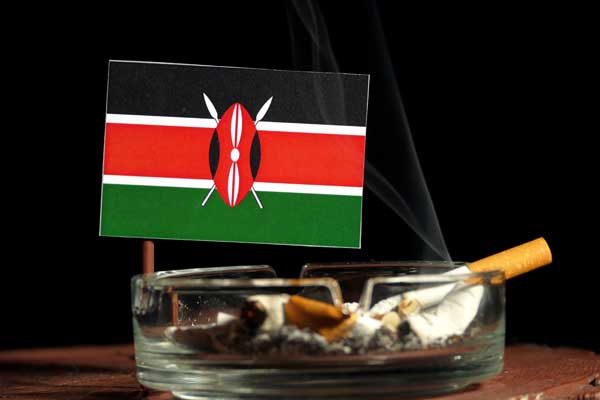Kenya is losing over Sh9 billion ($69 million) annually in unpaid taxes due to the booming illicit cigarette trade, according to a new report by global research firm Kantar. The study reveals that more than one in three cigarettes sold in Kenya evade taxes, dealing a major blow to government revenue and legitimate businesses.
Illegal Trade Hits Record High
The findings show a sharp rise in smuggled and counterfeit cigarettes, with illicit products now making up 37% of the market, up from 27% just a year ago. Most of these cigarettes are smuggled into the country through porous borders, denying Kenya crucial tax revenues needed for public services.
British American Tobacco (BAT) Kenya, a leading manufacturer, has raised the alarm, urging authorities to take immediate action against the illegal trade.
“This is not just an economic issue—it’s a threat to national security and public welfare,” said BAT Kenya Managing Director Crispin Achola. “The surge in illicit cigarettes is robbing the government of vital revenue and endangering thousands of legitimate jobs in our supply chain.”
KRA Seizes Sh243 Million in Counterfeit Goods
The Kenya Revenue Authority (KRA) reported that confiscations of smuggled and fake goods at border points rose to Sh243.5 million ($1.9 million) last year, up from Sh200 million ($1.5 million) the previous year. However, enforcement efforts remain insufficient to curb the growing underground market.
Call for Stronger Enforcement
Industry experts warn that without stricter border controls, harsher penalties, and better surveillance, the illegal cigarette trade will continue to thrive. The Kenyan government faces mounting pressure to:
Strengthen customs checks at key entry points.
Crack down on counterfeit manufacturers and distributors.
Increase public awareness on the dangers of illicit tobacco.
Economic and Security Threat
Beyond lost taxes, the illicit trade fuels organized crime and undermines public health, as untested counterfeit cigarettes flood the market. If unchecked, the problem could worsen, further draining Kenya’s economy.
“This is a wake-up call,” said a tax policy analyst. “Kenya must act fast before the black market grows beyond control.”



